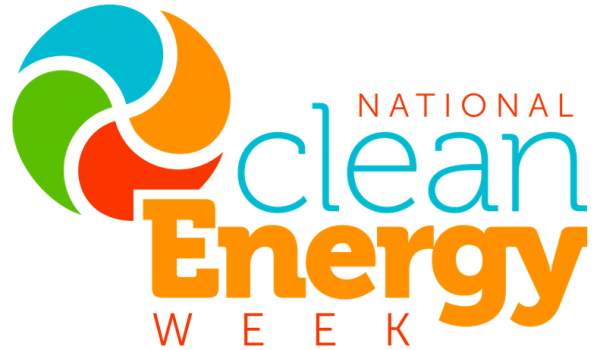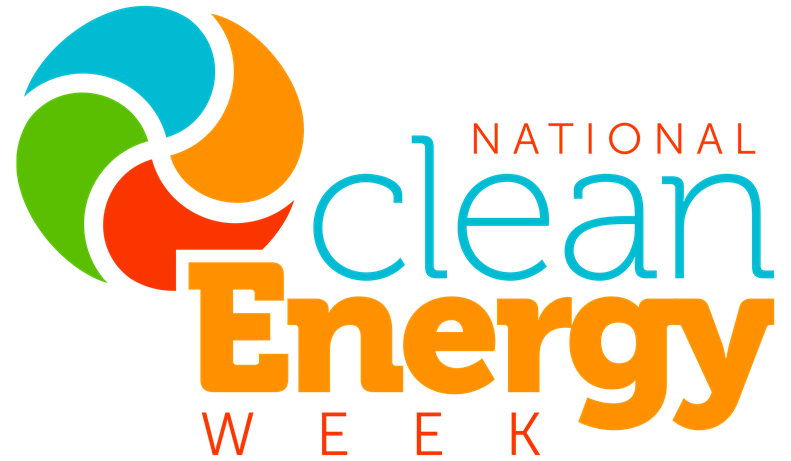symposium Agenda
The 2023 Policymaker Symposium featured both virtual and in-person panel discussions with energy experts, industry leaders, Members of Congress, and administration officials.
SEPTEMBER 26
1:00 PM
Opening Remarks
- Heather Reams, Chair, National Clean Energy Week & President, CRES Forum
Congressional Remarks
- Senator Joe Manchin (D-W.V.)
- Senator Chris Coons (D-Del.)
- Senator Kevin Cramer (R-N.D.)
- Rep. Debbie Lesko (R-Ariz.)
- Rep. David Valadao (R-Calif.)
Administration Remarks
- Jeff Marootian, Senior Advisor for Energy Efficiency and Renewable Energy, Office of the Secretary, U.S. Department of Energy
2:00 PM
Increasing U.S. Competitiveness and Energy Security Through Trade
American resources play a major role in reducing global emissions. This discussion will explore how the U.S. can leverage its trade policy to strengthen the competitiveness of U.S. industries while reducing global GHG emissions. It will feature insights from experts from the research and policymaking communities.
- Catrina Rorke, Senior Vice President for Policy and Research, Climate Leadership Council
- Sarah Stewart, CEO, Silverado Policy Accelerator
- George David Banks, Senior Fellow, CRES Forum
- Xan Fishman, Director of Energy Policy and Carbon Management, Bipartisan Policy Center [Moderator]
2:45 PM
Congressional Remarks
- Rep. Dusty Johnson (R-S.D.)
- Rep. Randy Feenstra (R-Iowa)
Modeling Pathways to Net Zero: A Case Study on Energy Security as the U.S. Decarbonizes
At what pace and scale will the U.S. need to deploy clean energy technologies to achieve net zero by 2050? How will this energy transition impact energy security and the U.S. position today as a major energy exporter? What are the sources of uncertainty that policymakers and industry should pay attention to in the coming years? This discussion will explore these questions through a synthesis of new energy system modeling results from Evolved Energy Research.
- Dr. Jim Williams, Professor of Energy Systems Management, University of San Francisco & Senior Fellow, Evolved Energy Research
- Ryan Jones, Co-Founder, Evolved Energy Research
- Dr. Karl Hausker, Senior, World Resources Institute
- David Paolella, Manager of U.S. Policy & Advocacy, Breakthrough Energy [Moderator]
3:30 PM
Armchair Discussion: Grid Deployment Office
- Maria Duaime Robinson, Director, Grid Deployment Office, U.S. Department of Energy
- Emily Duncan, Senior Vice President of Federal Affairs, American Electric Power
4:00 PM
Power Sector Resiliency: Keeping the Lights on While Reducing Emissions
As our daily lives are increasingly electrified, the need for a reliable power supply has never been more important. Considering recent summer and winter weather-induced blackouts, accomplishing this critical goal while reducing carbon emissions and maintaining affordable electricity prices is challenging states, regulators, investor-owned utilities, and retail power providers alike. Building transmission and expanding critical infrastructure regionally and across interconnections can facilitate the increased use of remote utility-scale renewables while reducing power sector emissions.
- Todd Snitchler, CEO, Electric Power Supply Association
- John Di Stasio, President, Large Public Power Council
- Yvonne A. McIntyre, Vice President of Federal Affairs, PG&E Corporation
- Dr. Shannon Bragg-Sitton, Director, Integrated Energy and Storage Systems, Idaho National Laboratory
- Neil Chatterjee, Senior Advisor, Hunter Lovells [Moderator]
4:45 PM
Closing Remarks
- Karen Harbert, President and CEO, American Gas Association
SEPTEMBER 27
1:00 PM
Opening Remarks
- Pedro Pizarro, President and CEO, Edison International
Congressional Remarks
- Speaker Kevin McCarthy (R-Calif.)
- Senator Lisa Murkowski (R-Alaska)
- Rep. Buddy Carter (R-Ga.)
- Rep. Juan Ciscomani (R-Ariz.)
- Rep. Mariannette Miller-Meeks (R-Iowa)
2:00 PM
Driving Forward Emissions Reduction in the Transportation Sector
Achieving global decarbonization in the transportation sector is challenging. This panel discussion will feature diversity of industry insights in this sector and the regulatory barriers they face.
- Theresa Romanosky, Assistant General Cousel, American Association of Railroads
- Dr. Gavin Towler, Corporate Vice President and Chief Scientist, Sustainable Technologies, Honeywell
- Tahmid Mizan, Global Regulatory Manager, ExxonMobil
- Jeff Clarke, Vice President, Regulatory & Government Affairs and General Counsel, NGVAmerica
- Bob Stout, Senior Fellow, Duke Nicholas Institute for Energy, Environment & Sustainability [Moderator]
2:45 PM
Congressional Remarks
- Rep. Scott Peters (R-Calif.)
- Rep. Jeff Duncan (R-S.C.)
Industry Perspectives: How Permitting Reform Will Advance American Clean Energy Production
The transition to a low-carbon economy depends on the expansion of clean energy infrastructure, such as transmission and energy storage. Yet far too often, projects that are desperately needed are delayed for years because of cumbersome and duplicative regulatory barriers. This discussion will feature the growing consensus across the energy industry on the importance of permitting reform.
- Jason Grumet, CEO, American Clean Power Association
- Anne Bradbury, CEO, American Exploration & Production Council
- Brian Wolff, Chief Strategic Officer and Executive Vice President of Public Policy & External Affairs, Edison Electric Institute
- Dr. Jennifer Uhle, Vice President of Technical and Regulatory Services, Nuclear Energy Institute
- Malcolm Woolf, President and CEO, National Hydropower Association
- Christine Harbin, Vice President of External Affairs, CRES Forum [Moderator]
3:45 PM
Congressional Remarks
- Rep. Pete Stauber (R-Minn.)
- Rep. Jen Kiggans (R-Va.)
- Rep. Blake Moore (R-Utah)
American Energy Independence: How the U.S. Can Better Source Critical Minerals and Strengthen Supply Chain Security
A global clean energy transition utilizing existing technologies like EVs and renewable electricity is an extraordinarily minerals-intensive proposition. This panel will explore major issues facing sourcing, inventing substitutes, recycling and reprocessing. These will include national security and the role of innovation in addressing our challenges with critical minerals and resources.
- Jeremy Furr, Senior Vice President of Strategic Sourcing, Stryten Energy
- Christopher Minardi, Nexans High Voltage USA Inc.
- Ben Steinberg, Executive Vice President and Critical Infrastructure Group Co-Chair, Battery Materials & Technology Coalition
- Jeremy Harrell, Chief Strategy Officer, ClearPath
- Leila Kimbrell, Executive Director, Resource Development Council for Alaska, Inc.
SEPTEMBER 28
1:00 PM
Opening Remarks
- Heather Reams, Chair, National Clean Energy Week & President, CRES Forum
Armchair Discussion
- Hon. Xochitl Torres-Small, Deputy Secretary, U.S. Department of Agriculture
- Hon. Mark Menenzes, former Deputy Secretary, U.S. Department of Energy
- Heather Reams, President, CRES Forum [Moderator]
1:30 PM
Leveraging America’s Carbon Advantage: How the Industrial Sector Can Provide Solutions for Decarbonization
This panel discussion will address the technical and policy challenges in decarbonizing key industry sectors, some of the most promising technological approaches to address it; and how leveraging America’s carbon advantage can both boost our competitiveness and reduce emissions globally.
- Ross Eisenberg, Vice President of Federal Affairs, American Chemistry Council
- Tony Pan, Co-Founder and CEO, Modern Hydrogen
- Chris A. Powers, Vice President of Carbon Capture, Utilization, and Storage, Chevron
- Erik Oswald, Vice President of Strategy and Advocacy for Low Carbon Solutions, ExxonMobil
- Jean-Francois Nolet, Senior Director of Global Government, Enerkem
- Landon Derentz, Senior Director and Morningstar Chair for Global Energy Security, Atlantic Council Global Energy Center
2:15 PM
Powering the Adoption of Innovative Clean Energy Technologies
How do we create an environment to scale essential energy infrastructure? The commercialization of essential clean energy technology is important. This can alleviate some concerns investors have regarding the operability and performance of otherwise technology that is untested in real world conditions. This conversation will explore how technology innovation (I.e., energy storage) can fit into the broader decarbonization picture.
- Jon Norman, President, Hydrostar
- Dr. George Borlase, Vice President of Standards Development, UL Standards & Engagement
- Jeannette Mills, Executive Vice President and Chief External Relations Officer, Tennessee Valley Authority
- Joe Mastrangelo, CEO, Eos Energy
- Lisa Jacobson, President, Business Council for Sustainable Energy [Moderator]
3:00 PM
Armchair Discussion: Loan Program Office
- Jigar Shah, Director, Loan Program Office, U.S. Department of Energy
- David Boyce, CEO, Schroders Greencoat North America
- William Atcheson, ESG & Sustainability Strategist, Jeffries
3:30 PM
The Government’s Role in Incentivizing the Clean Energy Transition
Despite finding standalone bipartisan support and the importance of getting clean energy projects in the ground, the tax provisions included in the Inflation Reduction Act (IRA) of 2022 have become a political football. This discussion will explore the importance of these provisions as they relate to clean energy deployment.
- Abigail Ross Hopper, President and CEO, Solar Energy Industries Association
- Dan Eggers, CFO, Constellation
- Jeannie Salo, Vice President of Government Affairs, Schneider Electric
- Andrew Wills, Senior Vice President of Federal Affairs, Invenergy
- Tom Starrs, Vice President of Government & Public Affairs, EDP Renewables [Moderator]
4:25 PM
Administration Remarks
- Senator Ron Wyden (D-Ore.)
Accelerating Decarbonization: How Businesses are Leading the Charge
Policy action along with major investments from the public and private sector are needed to accelerate decarbonization. This conversation will feature how Congress, the Administration, industry, and the investment community can work together to advance innovative energy technologies.
- Eric Dresselhuys, CEO, ESS, Inc.
- Seonghoon Woo, CEO, Amogy
- Adrian Corless, CEO, CCI
- Theresa Christopher, Head of Climate, Sustainability, and Environmental Policy, Amazon [Moderator]
5:10 PM
American Innovation: How the Private Sector and Government Can Work Together to Advance Innovative Clean Energy Technologies
The Advanced Research Projects Agency-Energy (ARPA-E) advances high-potential, high-impact energy technologies that are too early in their development for private-sector investment. The DOE’s Office of Technology Transitions (OTT) expands the public impact of the department’s research, development, demonstration, and deployment (RDD&D) portfolio. This fireside armchair discussion will explore how these offices advance the economic, energy and national security interests of the nation.
- Dr. Evelyn N. Wang, Advanced Research Projects Agency-Energy (ARPA-E), U.S. Department of Energy
- Mary Yamada, Chief of Staff, Office of Technology Transitions, U.S. Department of Energy
- Jim Cabot, Head of External Affairs, Breakthrough Energy Ventures
5:30 PM
Closing Remarks
- Heather Reams, Chair, National Clean Energy Week & President, CRES Forum

